Ahmad N. Amir, Abdi O. Shuriye & Jamal I. Daoud || 7 Januari 2021
ON ISLAMIC MOVEMENTS AND INSTITUTIONS
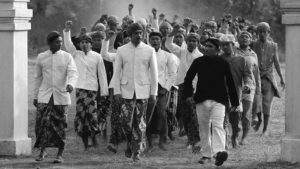 The impact of Muhammad Abduh is manifestly evident in current religious movements and institutions in the Malay world. Notable among them are Muhammadiyah, al-Irsyad, Pensyarikatan Ulama, Hizbul Muslimin, Pertubuhan al-Islah (al-Islah Organization), Persatuan Islam, Sarekat Islam and Sumatera Thawalib. These institutions remarkably developed and extended Abduh’s decisive effort to advocate reform and renewal, challenge the obsolescence and naivety of conservative ‘old guards’, and demand radical transformation of Muslim society and its worldview. This is described by Muhammad Kamal Hassan in his foreword to Reclaiming The Conversation: Islamic Intellectual Tradition in the Malay Archipelago, a book on the educational legacy of eleven key thinkers in the Malay-Indonesian world: “It was truly the modernization of the Malay world in the context of the movement from myths and superstition to rational thinking…(these scholars) lay the foundation of an integrated education system. Their creative-synthesis broke new ground, although they sometimes had to face the opposition from within their own communities and were labelled as the Young Turks (Kaum Muda), in contrast to the Old Guards (Kaum Tua) who were more conservative in the sense that they were not willing to examine their own traditions and consider the possibility of new ideas and approaches from other traditions or civilizations” [56].
The impact of Muhammad Abduh is manifestly evident in current religious movements and institutions in the Malay world. Notable among them are Muhammadiyah, al-Irsyad, Pensyarikatan Ulama, Hizbul Muslimin, Pertubuhan al-Islah (al-Islah Organization), Persatuan Islam, Sarekat Islam and Sumatera Thawalib. These institutions remarkably developed and extended Abduh’s decisive effort to advocate reform and renewal, challenge the obsolescence and naivety of conservative ‘old guards’, and demand radical transformation of Muslim society and its worldview. This is described by Muhammad Kamal Hassan in his foreword to Reclaiming The Conversation: Islamic Intellectual Tradition in the Malay Archipelago, a book on the educational legacy of eleven key thinkers in the Malay-Indonesian world: “It was truly the modernization of the Malay world in the context of the movement from myths and superstition to rational thinking…(these scholars) lay the foundation of an integrated education system. Their creative-synthesis broke new ground, although they sometimes had to face the opposition from within their own communities and were labelled as the Young Turks (Kaum Muda), in contrast to the Old Guards (Kaum Tua) who were more conservative in the sense that they were not willing to examine their own traditions and consider the possibility of new ideas and approaches from other traditions or civilizations” [56].
 Muhammadiyah: Persyarikatan Muhammadiyah is an important religious movement and “Reformist Muslim organization” founded by Shaykh Ahmad Dahlan (d. 1923) on 18 November, 1912 in Yogyakarta “after the example of reformist movements in Egypt and India.” [32]. It was the largest non-political Muslim organization in Indonesia that worked to reinforce and renew the ideals of Muhammad Abduh. Its phenomenal contribution can be seen in the building of modern and progressive Islamic schools and institutions as well as in the mobilization of comprehensive social services and support, as described by George McTurnan Kahin: “The Muhammadiyah, an organization founded in 1912 at Yogyakarta by Kiyai Haji Ahmad Dahlan, a believer in modernist Islamic ideas. Originally devoted largely to education, the organization broadened its activities to include a wide range of social services: free clinics, poor relief, orphanages, publishing of the Koran in Javanese and Malay, libraries, etc., as well as Muslim schools. It conceived itself essentially as a propagator of Muslim culture and the non-political ideas of the modernist movement” [19]. Muhammadiyah was founded to accomplish four crucial tasks: “(1) the purification of Indonesian Islam from corrupting influences and practices, (2) the reformation of Muslim education, (3) the reformulation of Islamic doctrine in the light of modern thought, and (4) the defence of Islam against external influences and attacks [17].
Muhammadiyah: Persyarikatan Muhammadiyah is an important religious movement and “Reformist Muslim organization” founded by Shaykh Ahmad Dahlan (d. 1923) on 18 November, 1912 in Yogyakarta “after the example of reformist movements in Egypt and India.” [32]. It was the largest non-political Muslim organization in Indonesia that worked to reinforce and renew the ideals of Muhammad Abduh. Its phenomenal contribution can be seen in the building of modern and progressive Islamic schools and institutions as well as in the mobilization of comprehensive social services and support, as described by George McTurnan Kahin: “The Muhammadiyah, an organization founded in 1912 at Yogyakarta by Kiyai Haji Ahmad Dahlan, a believer in modernist Islamic ideas. Originally devoted largely to education, the organization broadened its activities to include a wide range of social services: free clinics, poor relief, orphanages, publishing of the Koran in Javanese and Malay, libraries, etc., as well as Muslim schools. It conceived itself essentially as a propagator of Muslim culture and the non-political ideas of the modernist movement” [19]. Muhammadiyah was founded to accomplish four crucial tasks: “(1) the purification of Indonesian Islam from corrupting influences and practices, (2) the reformation of Muslim education, (3) the reformulation of Islamic doctrine in the light of modern thought, and (4) the defence of Islam against external influences and attacks [17].
Kiyai Haji Ahmad Dahlan brought about significant reform in the area of social, cultural and spiritual development; he played a dynamic role in the religious and political terrain of Indonesia and his legacy continues to reverberate throughout the continent, as remarked by President Sukarno in his eulogy to Kiyai: “We know Kiyai Haji Ahmad Dahlan, not only as a founder and father of Muhammadiyah, but as one of the pioneers of freedom and Islamic reformism in Indonesia.” [59].
Dahlan’s uncompromising principle in defending the ideal of Islam and the authorized practices of religion was portrayed by Solichin Salam in his work on K.H. Dahlan as the great champion and reformer of Islam: “He was vehemently opposed to everything pertaining to conservatism, formalism and traditionalism in superstitious customs, as found in Islamic life in the early twentieth century” [59]. He embraced the idea of reform and strived to improve the Islamic world, as he said: “We must not reject the existence of change in nature. This change is a change of progress. Progress aims at the well-being of the world” [60]. He had inaugurated and propelled the dynamic movement of Islamic reform that became the lasting legacy of Muhammadiyah. As K.H. Dahlan proclaimed: “I must work hard to lay the cornerstone of this tremendous undertaking … and if I work hard to finish this project, which is almost finished, it will be easy for the people who come after me to complete the work.” [60].
Muhammadiyah had a significant impact on modern life of Java. Dahlan was hailed by his disciples and followers as the Mujaddid al-Islam (Reformer of Islam) who uncompromisingly strived to “restore faith and life to the Muslims in Indonesia, freeing their minds from the shackles of blind obedience and cleansing Islam in Indonesia from the mud of indigenous and Hinduistic rituals. ” [25] Muhammady Idris, in his thesis that analyzed the life and work of K.H. Ahmad Dahlan, summarized the achievement of Muhammadiyah and the fame of Dahlan: “Through the Muhammadiyah, Kiyai Haji Ahmad Dahlan successfully spread his idea to the Muslim society in Yogyakarta. It became a popular means for Islamic reformers throughout Indonesia to launch ideas of modernization into the thoughts and customs of the Muslims” [46].
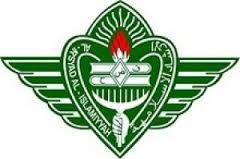 Al-Irshad: Jam‘iyat al-Islah wa al-Irsyad al-‘Arabiyah (Arab Organization for Reform and Guidance), later renamed Jam‘iyat al-Islah wal-Irsyad al-Islamiyyah (Islamic Organization for Reform and Guidance), was founded by Syaikh Ahmad Surkati al-Ansari (1876-1943) in 1913 to initiate reform. It inspired a new social and religious worldview. Surkati was the leading exponent of Abduh’s idealism and had subscribed to al-Manar journal from Egypt since its first release. He established al-Irshad to accelerate “the propagation of the ideology of islah (reform) and tajdid (renewal) in the region” [13]. Al-Irshad was an influential organization “active among Indonesia’s Hadrami community” [15] as stressed by Muhammady Idris: “As one of the Arab-born pioneers of the movement, Shaykh Ahmad Surkati spread modernist orthodoxy in Indonesia, especially among the local Arab community” [46].
Al-Irshad: Jam‘iyat al-Islah wa al-Irsyad al-‘Arabiyah (Arab Organization for Reform and Guidance), later renamed Jam‘iyat al-Islah wal-Irsyad al-Islamiyyah (Islamic Organization for Reform and Guidance), was founded by Syaikh Ahmad Surkati al-Ansari (1876-1943) in 1913 to initiate reform. It inspired a new social and religious worldview. Surkati was the leading exponent of Abduh’s idealism and had subscribed to al-Manar journal from Egypt since its first release. He established al-Irshad to accelerate “the propagation of the ideology of islah (reform) and tajdid (renewal) in the region” [13]. Al-Irshad was an influential organization “active among Indonesia’s Hadrami community” [15] as stressed by Muhammady Idris: “As one of the Arab-born pioneers of the movement, Shaykh Ahmad Surkati spread modernist orthodoxy in Indonesia, especially among the local Arab community” [46].
In 1911, Surkati was appointed as a teacher at Jam‘iyat al-Khayr (The Benevolent Society) in Jakarta where he attained unprecedented fame as the leading reformist and pioneer of Islamic modernism. Surkati recruited teachers from Sudan who shared the same orientation for religious reform, such as Ahmad al-‘Aqib, Muhammad Nur b. Muhammad Khayr al-Ansari (Abu al-Anwar), Satti Muhammad Surkitti (Abu al- Fadl, Surkati’s brother) and Hasan Hamid al-Ansari; the new recruits helped to consolidate reform in Jam‘iyat al-Khayr, as mentioned by Deliar Noer: “The appointees were well versed in Abduh’s reformist ideas…who had studied at al-Azhar and regarded themselves as Abduh’s devout followers and propagators of his reformist project”[14][5].
Jam‘iyyah Khayr was an important organization that inspired momentous reform and the rise of hadrami elite as depicted by Natalie N. Mobini-Kesheh in her article “The Arab Periodicals of the Netherlands East Indies, 1914-1942”: “The nahdah al-hadramiyyah or ‘hadrami awakening’ can be dated from the establishment of the first Arab educational organization, Jam‘iyyah Khayr, in 1901. As it gained momentum in the ensuing decades, it was characterized by the proliferation of three novel social institutions: the voluntary organization (jam‘iyyah), the modern style school (madrasah) and the newspaper (jaridah)” [50].
In 1913, Surkati broke away from Jamiat Khair (al-Jam‘iyya al-Khayriyya) that was considered a “more conservative Arab educational association” and established Al-Irshad Madrasa in Jakarta that gained wider influence among the hadramis as it “taught a curriculum of religious and general subjects exclusively in Arabic, for which it employ[sic] teachers from the Arab Middle East” [15]. It advocated fundamental reform and established Abduh’s modern idealism, as described by Farish Noor in his book The Madrasa in Asia: Political Activism and Transnational Lineages: “The school was oriented towards Egyptian reformism; instead of classical fiqh texts it placed emphasis on the Qur’an and hadith; usul al-fiqh and the works of Abduh and other modern authors…many graduates of this madrasa spread the reformist message as teachers and preachers beyond hadrami circles in Indonesia.” [15]
Surkati major undertaking was to advocate and explicate the fundamental ideas and works of Abduh (especially Tafsir al-Manar) to the hadrami populace, as explained by Muhammady Idris: “This book, al-Tafsir Muhammad Abduh, contained precisely the teachings which Shaykh Ahmad Surkati himself was eager to spread among the Arab community.” [46]. G.F. Pijper, the famous historian from The Netherlands, described him as “an Islamic reformer in Indonesia” and al-Irsyad as a “reform movement that resemble the reform movement in Egypt, like the struggle mobilized by Abduh and Rida in Jam‘iyat al-Islah wal Irsyad” (Association of Reform and Guidance) [16].
Al-Irshad promoted a modern idealism that mobilized hadrami Arabs to effect social reform, as stated by Affandi Bisri: “The importance of the Irshadi movement lies in its effecting a social system in the Arab community and making a significant contribution to the birth and development of Islamic reform in Indonesia” [2]. It campaigned to promote justice and equality of the Muslim ummah, and: “the fact that the hadrami Arabs were divided into two groups, the Sayyids who enjoyed elevated position and the non- Sayyids, urged Ahmad Surkati to propagate the idea of equality among Muslims. Thus, in 1913, Surkati sponsored the foundation of an Arab organization of Islamic reform called al-Irshad which has been especially influential by means of its educational system” [2].
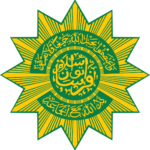 Persatuan Islam: Persatuan Islam (Islamic union) or Persis was established in Bandung in 1923; it was considered “by far the most puritan of Indonesia’s reform movements and it develops religious attitude close to that of Saudi Salafism” [15]. It was founded to “enlarge discussions on religious topics” [32] and was the most influential reformist movement. Its most prominent member was Ahmad Hassan who joined Persatuan Islam in 1924 and “whose viewpoint gave real format and individuality to the Persatuan Islam and clearly placed it in the modernist Muslim camp” [32]. Ahmad Hassan was born in 1887 in Singapore and in early 1920, he had visited Surabaya and had discussions with Indonesian religious scholars on the issues of differences between Kaum Muda and Kaum Tua, “and this discussion in Surabaya apparently struck a responsive chord in Ahmad, so that he subsequently developed a viewpoint that was in basic conformity with the Kaum Muda…and centered his life increasingly on religion and what he considered to be the defence of Islam”[32].
Persatuan Islam: Persatuan Islam (Islamic union) or Persis was established in Bandung in 1923; it was considered “by far the most puritan of Indonesia’s reform movements and it develops religious attitude close to that of Saudi Salafism” [15]. It was founded to “enlarge discussions on religious topics” [32] and was the most influential reformist movement. Its most prominent member was Ahmad Hassan who joined Persatuan Islam in 1924 and “whose viewpoint gave real format and individuality to the Persatuan Islam and clearly placed it in the modernist Muslim camp” [32]. Ahmad Hassan was born in 1887 in Singapore and in early 1920, he had visited Surabaya and had discussions with Indonesian religious scholars on the issues of differences between Kaum Muda and Kaum Tua, “and this discussion in Surabaya apparently struck a responsive chord in Ahmad, so that he subsequently developed a viewpoint that was in basic conformity with the Kaum Muda…and centered his life increasingly on religion and what he considered to be the defence of Islam”[32].
A. Hassan himself was a regular subscriber to al-Manar and al-‘Urwa al-Wuthqa, and his involvement in Persis had “brought to surface the competency of A. Hassan, who was regarded as one of the most influential islah personalities in Indonesia.” [38].
Persatuan Islam championed the principle of independent reasoning (ijtihad) and held that “new investigation and interpretation of religious fundamentals were necessary, rather than relying on the tradition and past interpreters of Islam [31]. This echoes Abduh’s thoughts in defending reason and renewing ijtihad, as explained by Michael Laffan: “Often labelled as Islamic modernism, Muhammad Abduh advocated the adoption of western technologies and systematic educational methods not in direct conflict with Islamic values. Furthermore, he outlined an approach to “return” to a pure understanding of Islam by interpreting the Qur’an and the sunna through the use of independent and rational investigation (ijtihad) above the allegedly blind reliance (taqlid) upon the opinions of the medieval jurists” [39].
 Sumatera Thawalib: Sumatera Thawalib was a modern school founded by Haji Abdul Karim Amrullahin in 1915 to advance Islamic schooling and education in the Malay-Indonesian world. It strived to modernize Islamic institutions and introduce modern and scientific-oriented religious schools in Indonesia. It was established in Padang Panjang, West Sumatra as an important base to initiate and drive educational reform. Abduh’s seminal Tafsir al-Manar was taught in the school and became part of the required syllabus for all students at level VI and VII [68]. The impressive framework of reform that was laid out inspired the exceptional scholar Shaykh Muhammad Jamil Djambek to realize this ideal in Sumatera Thawalib. He worked closely with Haji Abdul Karim Amrullah to propagate a progressive and modernist Islam in an attempt to modernize schools, subjects, classes, curriculum and pedagogy, besides establishing a modern system of learning and teaching.
Sumatera Thawalib: Sumatera Thawalib was a modern school founded by Haji Abdul Karim Amrullahin in 1915 to advance Islamic schooling and education in the Malay-Indonesian world. It strived to modernize Islamic institutions and introduce modern and scientific-oriented religious schools in Indonesia. It was established in Padang Panjang, West Sumatra as an important base to initiate and drive educational reform. Abduh’s seminal Tafsir al-Manar was taught in the school and became part of the required syllabus for all students at level VI and VII [68]. The impressive framework of reform that was laid out inspired the exceptional scholar Shaykh Muhammad Jamil Djambek to realize this ideal in Sumatera Thawalib. He worked closely with Haji Abdul Karim Amrullah to propagate a progressive and modernist Islam in an attempt to modernize schools, subjects, classes, curriculum and pedagogy, besides establishing a modern system of learning and teaching.
The Hadrami Elite: The monumental influence of Abduh was also apparent among the hadrami elite in the Malay-Indonesian world that was closely connected to al-Manar and its aspirations. The strong connection and contribution of the hadrami elite to establish Abduh’s distinguished legacy in the region was clearly displayed in the publication of al-Imam by hadrami figures such as Sayyid Shaykh Ahmad al-Hadi (1863-1934), Shaykh Muhammad Salim al-Kalali and Sayyid Muhammad Aqil al-Yahaya (1863-1931). These scholars exercised major influence in spearheading reform movements in the Malay world, as asserted by Ahmed Ibrahim Abushouk in his description of al-Hadi as a representative of the reformist hadrami sayyid “who was so inspired by the message of al-Manar that he tried to inculcate its teaching in the hearts of the Malay youth at large without confining his efforts to the hadrami diaspora in the Malay peninsula” [6].
The strife between the young and old hadrami elite began to inflame with the arrival of reformist ideas, leading to intense confrontation between the conservative and modernist camp of the hadrami community in Malaya, as stated by Abushouk: “The islah and tajdid ideology had produced real challenge to the traditional status quo in the hadrami community and brought a deep socio-political and ideological conflict between the hadrami reformists and their traditionalist counterparts” [6]. The clash was also related to intense cultural and ideological differences that incited an uninterrupted series of opposing ideas, practices, values and institutions, as detailed by Giora Eliraz: “It inflamed confrontation between the orthodox Islam and the syncretic religion, between the high culture and the popular culture, between the global type of Islam and the local one [and] between the shari‘a and the ‘adat’” [18].
 The foremost modernist among the hadramis in Malaya was Syed Shaykh al-Hadi who, while pursuing his studies in Cairo, had received direct instruction from Muhammad Abduh. The spread of Abduh’s worldview in the region was partly due to al-Hadi’s unrelenting effort evident in his impressive works, notably Hikayat Faridah Hanom(1925), Hikayat Setia Asyik kepada Masyuknya, Kitab Alam Perempuan (The Book of Women’s World) and Kitab Agama Islam dan Akal (Islam and Reason), as observed by Ahmad Farouk Musa: “Abduh’s argument that religion could never enter into conflict with knowledge and that reason would necessarily accept the dogmas of religion after testing the proofs of its truth; had a profound effect on al-Hady. He was so impressed by this argument that he wrote a book titled Kitab Agama Islam dan Akal (Islam and Reason) in which he presented Abduh’s ideas in simple terms for the Malay readers.” [34].
The foremost modernist among the hadramis in Malaya was Syed Shaykh al-Hadi who, while pursuing his studies in Cairo, had received direct instruction from Muhammad Abduh. The spread of Abduh’s worldview in the region was partly due to al-Hadi’s unrelenting effort evident in his impressive works, notably Hikayat Faridah Hanom(1925), Hikayat Setia Asyik kepada Masyuknya, Kitab Alam Perempuan (The Book of Women’s World) and Kitab Agama Islam dan Akal (Islam and Reason), as observed by Ahmad Farouk Musa: “Abduh’s argument that religion could never enter into conflict with knowledge and that reason would necessarily accept the dogmas of religion after testing the proofs of its truth; had a profound effect on al-Hady. He was so impressed by this argument that he wrote a book titled Kitab Agama Islam dan Akal (Islam and Reason) in which he presented Abduh’s ideas in simple terms for the Malay readers.” [34].
Al-Hady published Malay translations of several modernist works, including parts of Tahrir al-Mar’ah (The Emancipation of Women) by Qasim Amin, and Tafsir al-Manar. He also founded modern religious schools and initiated unprecedented reform that gained prominence and far-reaching influence in Malaya, as remarked by Ahmad Murad Merican: “In his role as a journalist, al-Hady’s greatest success was in using his milieu and his ideology through the periodicals he founded and led. He created a public sphere and an audience during the formative years of Malay society under British rule. Through journalism, he enabled new ideas and new values to be introduced against the orthodoxy of the ulama and Malay society…his journalism calls for measuring and rationalizing Islam as modern and progressive – features which were embraced by the Enlightenment and later to be integral concepts of modernity” [7].
Hafiz Zakariya, in his article on Syed Syaikh al-Hadi’s struggle to effect reform, described the enormous impact of Abduh on Hadi’s socio-religious outlook and his effort to effect decisive reform in the Malay Archipelago: “The most prolific reformist who carried out this task vigorously was the multi-talented al-Hadi, who translated several of ‘Abduh’s and Qasim Amin’s works into Malay. In 1927, al-Hadi translated ‘Abduh’s Tafsir Juz ‘Amma (Exegesis of the Last Section of the Qur’an) and in the subsequent year, he published Tafsir al-Fatihah (Exegesis of the Opening Chapter of the Qur’an) in Malay. Inspired by ‘Abduh, al-Hadi published his own work, Kitab Agama Islam dan Akal (Islam and Reason) [20].
The role of Syed Shaykh al-Hadi in advocating and transmitting Abduh’s reformism and idealism was paramount in the process of reform and renewal in the region, as emphasized by Ahmad Farouk Musa in his article Feminism through the lens of Islamists: “Abduh’s struggle for reform in the Muslim world reached a new milestone when his students from the Far East, Malaya and Indonesia, established a link with al-Manar. And among the students of Abduh that stood out was a young man by the name of Syed Shaykh al-Hady. Together with other al-Azhar-educated students of Abduh, namely Shaykh Tahir Jalaluddin and Abbas Taha, al-Hady founded the journal al-Imam (The Leader) in 1906, dedicated to reform and renewal. Throughout his life, al-Hady championed the cause of modernization and reform of his own society. True to the spirit of al-Manar, al-Hady not only condemned taqlid (blind imitation) but upheld the torch of ijtihad (independent reasoning)” [34].
ON RATIONAL THOUGHT
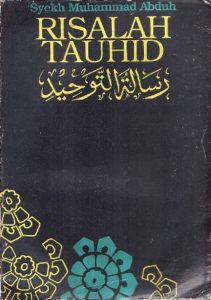 The rational interpretation of kalam propounded by Muhammad Abduh in Risalat al-Tauhid galvanized many liberal and rational thinkers in the Malay-Indonesian world. Notable among them are Harun Nasution (1919-1998) and Zainal Abidin Ahmad (Za’ba) (1895-1973). Harun Nasution, the great exponent of Mu’tazilite rationalism, was “firmly convinced that the revival of Mu‘tazila thought was essential for the modernization of Islam.” [55]
The rational interpretation of kalam propounded by Muhammad Abduh in Risalat al-Tauhid galvanized many liberal and rational thinkers in the Malay-Indonesian world. Notable among them are Harun Nasution (1919-1998) and Zainal Abidin Ahmad (Za’ba) (1895-1973). Harun Nasution, the great exponent of Mu’tazilite rationalism, was “firmly convinced that the revival of Mu‘tazila thought was essential for the modernization of Islam.” [55]
Nasution is regarded as “one of the few contemporary scholars in Indonesia who aspired to revive the spirit of modernization with his rational theology of Islam” [9]. He strongly believed in “the need for Muslims to free themselves from the rigid and fatalistic theologies of the Ash‘ariyya and Jabariyya” and is hailed as the great proponent of reason and leading exponent of Islamic modernism and religious reform ignited by Abduh in Cairo.
Abduh’s rational theology profoundly influenced Nasution’s neo-mu’tazilite views on the supremacy of reason and kalam, as evidenced in his work Islam Rasional: Pemikiran dan Gagasan. According to Nasution, “theology developed by the Mu‘tazila and ‘Abduh, is not merely an intellectual exercise or an academic enterprise, but instead has become the theological basis of the Islamic modernism” [58]. The reform movement in Cairo had a strong influence on his thoughts while he was studying at Al-Azhar university in 1940 for his bachelor degree and later, after his studies were interrupted, at the American University of Cairo after Indonesia’s independence.
In 1968, Nasution wrote his doctoral thesis at McGill University on “The place of reason in ‘Abduh’s theology: Its impact on his theological system and views” that explores the foundation of Abduh’s theological views. The thesis examined Abduh’s rational ideology and speculative framework, summarizing his theological viewpoints that confirmed his position as a Mu‘tazilite, as Nasution himself stated: “Reason is an important focus-word in ‘Abduh’s worldview and has a great influence on his theological system and views. Because of his position of ascribing great powers to reason and limited functions to revelation, his system and views are in glaring contradiction with those of the Ash‘ariya who have a distrust in the power of reason and great reliance on revelation. His system and views, on the other hand, greatly resemble those of the Mu‘tazila who have been well-known for their high appreciation of the power of reason and little reliance on revelation… Contrary to the prevalent opinion, ‘Abduh is neither an Ash‘ari, nor a Maturidi, nor an eclectic. He is rather a Mu‘tazili.” [29].
Za’ba is another leading exponent of Abduh’s rationalism, as articulated in his Falsafah Takdir (Philosophy of Predestination), which demonstrated the framework of Abduh’s theological reasoning. While setting a new milestone in modern Islamic theology (kalam), it analyzed concepts of justice, predestination and free will, and strongly criticized the Malays for their naivety and fatality.
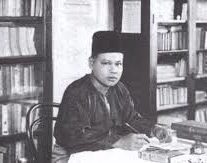 Za‘ba was strongly in favour of the dynamic worldviews and theological systems developed by Abduh, and hailed him as the defender of reason. He expounded Abduh’s critical work on the issues of kalam, showcasing the influence of medieval Mu‘tazilites on the latter’s rational persuasion. Abduh’s theological reasoning as unpacked in his Risalat al-Tauhid (The Theology of Unity) had a profound influence on the rational viewpoints propounded in Falsafah Takdir by Za‘ba who borrowed from Abduh’s theological construct, particularly his exposition of free will as presented in Risalat al-Tawhid (The Theology of Unity). As Abduh himself proclaimed: “The Qur’an directs us, enjoining rational procedure and intellectual enquiry into the manifestations of the universe and as far as may be, into its particulars, so as to come by certainty in respect of the things to which it guides.” [44].
Za‘ba was strongly in favour of the dynamic worldviews and theological systems developed by Abduh, and hailed him as the defender of reason. He expounded Abduh’s critical work on the issues of kalam, showcasing the influence of medieval Mu‘tazilites on the latter’s rational persuasion. Abduh’s theological reasoning as unpacked in his Risalat al-Tauhid (The Theology of Unity) had a profound influence on the rational viewpoints propounded in Falsafah Takdir by Za‘ba who borrowed from Abduh’s theological construct, particularly his exposition of free will as presented in Risalat al-Tawhid (The Theology of Unity). As Abduh himself proclaimed: “The Qur’an directs us, enjoining rational procedure and intellectual enquiry into the manifestations of the universe and as far as may be, into its particulars, so as to come by certainty in respect of the things to which it guides.” [44].
CONCLUSION
This paper has discussed at length Muhammad Abduh’s influence and contribution to Islamic reform in Southeast Asia. He had a major influence and a lasting impact in a wide and diverse spectrum of scholarly undertaking spanning tafsir, journals, press, newspapers, magazines, Islamic institutions, schools and movements. The fundamental aim of his reform was to reconstruct the modern worldview of Islam and adapt it to the modern requirements of a dynamic civilization. Abduh’s pervasive influence on the reform and renewal movements in Southeast Asia can be attributed to several factors: (1) his dynamic aspiration for Islamic reform and renewal, (2) his inclusive approach to reconstruct religious idealism and scientific thought, (3) his defining method to reclaim the dynamic position of the umma, (4) his high aspiration to proclaim the power of reason and definitive ijtihad (independent reasoning), (5) his rational approach and strong emphasis on islah (reform), maslaha (general welfare), wasatiya (moderation) and the principle of maqasid shari‘a (the higher objective of Islamic law) and, (6) his great commentary, al-Manar, that provides viable solutions to current challenges and malaise of the ummah.
Abduh’s contribution in forging a modern worldview of Islam in the Malay world cannot be underestimated; his tafsir bi al-‘aql or tafsir bi al-ra’y (commentary based on reason) ignited a new scientific tradition in tafsir. His idealism spurred the rise of reputed journals, printing press, newspapers, reform movements and institutions on the continent, instigating dynamic reform in Southeast Asia. Abduh’s legacy regarding the need for Islamic reform and renewal (islah and tajdid) remains a mission worth pursuing to ensure civilizational progress towards equality and justice in society.
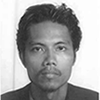 Dr Ahmad Nabil Amir is Head of Abduh Study Group, Islamic Renaissance Front. He has a PhD in Usuluddin from the University of Malaya. This essay was first published in the Middle-East Journal of Scientific Research 13 (Mathematical Applications in Engineering): 124-138, 2013 ISSN 1990-9233.
Dr Ahmad Nabil Amir is Head of Abduh Study Group, Islamic Renaissance Front. He has a PhD in Usuluddin from the University of Malaya. This essay was first published in the Middle-East Journal of Scientific Research 13 (Mathematical Applications in Engineering): 124-138, 2013 ISSN 1990-9233.
Bibliography
- Adams, Charles C., 1968. Islam and Modernism in Egypt: A Study of the Modern Reform Movement Inaugurated by Muhammad ‘Abduh (New York: Russell & Russell).
- Affandi, Bisri, 1976. Shaykh Ahmad al-Surkati: His Role in al-Irshad Movement in Java in the Early Twentieth Century. Master of Arts, Department of Islamic Studies, McGill University.
- Afaf Lutfi al-Sayyid, 1968. Egypt and Cromer: A Study in Anglo-Egyptian Relationship. London: Murray.
- Ahmad Farouk Musa, 2012. Wacana Pemikiran Reformis. Kuala Lumpur: Islamic Renaissance Front.
- Ahmed Ibrahim Abushouk, 2001. A Sudanese scholar in the Diaspora: Ahmad Muhammad al- Surkitti his Life and Career in Indonesia, 1911- 1943. Studia Islamika, 8 (1): 55-86.
- Ahmed Ibrahim Abushouk, 2009. Al-Manar and the Hadhrami Elite in the Malay-Indonesian World: Challenge and Response. In Ahmed Ibrahim Abushouk and Hassan Ahmed Ibrahim (Eds.). The Hadhrami Diaspora in Southeast Asia: Identity Maintenance or Assimilation? Leiden, The Netherlands: Koninklijke Brill NV.
- Ahmad Murad Merican, 2006. Telling Tales, Print and the Extension of Media: Malay Media Studies Beginning with Abdullah Munsyi Through Syed Shaykh al-Hady and Mahathir Mohamad, Kajian Malaysia. 24 (1-2): 151-169.
- Albert Hourani, 1962. Arabic Thought in the Liberal Age 1789-1939. Oxford: Oxford University Press.
- Assad Nimer Busool, 1976. Shaykh Muhammad Rashid Rida’s Relations with Jamal al-Din al- Afghani and Muhammad ‘Abduh. The Muslim World, 66 (4): 272-286.
- Azyumardi Azra, 2004. The Origins of Islamic Reformism in Southeast Asia: Networks of Malay- Indonesian and Middle Eastern ‘Ulama’ in the Seventeenth and Eighteenth Centuries. Honolulu: University of Hawai’i Press.
- Azyumardi Azra, 2006. The Transmission of al-Manar’s Reformism to the Malay-Indonesian world: the Case of al-Imam and al-Munir. In Stephane A. Dudoignon, Komatsu Hisao and Kosugi Yasushi (Eds.). Intellectuals in the Modern Islamic World: Transmission, Transformation and Communication. London & New York: Routledge.
- Bluhm-Warn, Jutta, 1983. A Preliminary Statement on the Dialogue Established between the Reform Magazine Al-Manar and the Malayo-Indonesian World. In Indonesia Circle, pp: 35-42.
- Bluhm-Warn, Jutta, 1997. Al-Manar and Ahmad Soorkattie. Links in the Chain of Transmission of Muhammad ‘Abduh’s Ideas to the Malay-Speaking World. In Peter G. Riddell and Tony Street, Eds., Islam: Essays on Scripture, Thought and Society, Leiden: Brill.
- Deliar Noer, 1973. The Modernist Muslim Movement in Indonesia 1900-1942. London and Kuala Lumpur: Oxford University Press.
- Farish A. Noor, Yoginder Sikand and Martin Van Bruinessen, (Eds.). The Madrasa in Asia: Political Activism and Transnational Linkages. Amsterdam: Amsterdam University Press.
- Guillaume Frédérich Pijper, 1984. Beberapa Studi tentang Sejarah Islam di Indonesia 1900-1950, tr. Dr. Tudjimah and Drs. Yessy Dagusdin. Jakarta: Universitas Indonesia.
- Gibb, H.A.R., 1947. Modern Trends in Islam. Chicago: Chicago University Press.
- Giora Eliraz, 2002. The Islamic Reformist Movement in the Malayo-Indonesian World in the First Four Decades of the Twentieth Century: Insights Gained from a Comparative Look at Egypt. Studia Islamika, 9 (2): 47-87.
- George McTurnan Kahin, 1952. Nationalism and Revolution in Indonesia. Ithaca: Cornell University Press.
- Hafiz Zakariya, 2007. From Cairo to the Straits Settlements: Modern Salafiyyah Reformist Ideas in Malay Peninsula. Intellectual Discourse, 15 (2): 125-146.
- Hafiz Zakariya, 2009. Sayyid Shaykh Ahmad al- Hadi’s Contributions to Islamic Reformism in Malaya. In Ahmed Ibrahim Abushouk, Hassan Ahmed Ibrahim (Eds.). The Hadhrami Diaspora in Southeast Asia: Identity Maintenance or Assimilation? Leiden, The Netherlands: Koninklijke Brill NV.
- Hafiz Zakariya, 2011. Cairo and the Printing Press as the Modes in the Dissemination of Muhammad ‘Abduh’s Reformism to Colonial Malaya. 2nd International Conference on Humanities, Historical and Social Sciences. IPEDR, 17, IACSIT Press, Singapore.
- Hafiz Zakariya, 2006. Islamic Reform in Colonial Malaya: Shaykh Tahir Jalaluddin and Sayyid Shaykh al-Hadi. Ph.d Thesis, University of California, Santa Barbara.
- Hamid, I., 1985. Peradaban Melayu dan Islam. Petaling Jaya: Fajar Bakti Publication.
- Hamka, K.H.A. Dahlan, 1952. In Encyclopaedi Islam Indonesia. Orang-Orang Besar Islam di Dalam dan di Luar Indonesia. Jakarta: Sinar Pujangga.
- Hamka, 1958. Pengaruh Muhammad Abduh di Indonesia. The Influence of Muhammad Abduh in Indonesia. Pidato diucapkan sewaktu menerima gelar Doktor Honoris Causa di Universitas al- Azhar, Mesir. Keynote address delivered in the inaugural lecture of acceptance the Honorary Doctorate from al-Azhar Univeristy, Cairo. Jakarta: Tintamas.
- Hamka, 1967. Tafsir al-Azhar. Jakarta: P.T. Pembimbing Masa.
- Hamka, 1967. Ajahku. Jakarta: Djajamurni.
- Harun Nasution, 1968. The Place of Reason in ‘Abduh’s Theology: Its Impact on his Theological System and Views. Ph.d Thesis, Institute of Islamic Studies, McGill University, Montreal.
- Henry Benda, 1970. Southeast Asian Islam in the Twentieth Century. In P.M. Holt et al. (Ed.). The Cambridge History of Islam, London: Cambridge University Press, Vol: 2. Howard, M. Federspiel, 2001. Islam and Ideology in the Emerging Indonesia State, Leiden: Brill NV.
- Howard, M. Federspiel, 2009. Persatuan Islam: Islamic Reform in Twentieth Century Indonesia. Singapore: Equinox Publishing.
- Ibn ‘Ashur, Muhammad al-Fadil and al-Tafsir wa- Rijaluhu, 1966. Tunis: Dar al-Kutub al-Sharqiyya.
- Ibrahim Abu Bakar, 1994. Islamic Modernism in Malaya: The Life and Thought of Syed Syekh al- Hadi. Kuala Lumpur: Universiti Malaya Press.
- Jajat Burhanuddin, 2004. The Fragmentation of Religious Authority: Islamic Print Media in Early 20th Century in Studia Islamika, vol: 11/1.
- Jajat Burhanudin, 2005. Aspiring for Islamic Reform: Southeast Asian Requests for Fatwas in Al-Manar. Islamic Law and Society, 12 (1): 9-26.
- John O. Voll, 1982. Islam: Continuity and Change in the Modern World. Boulder, Co: Westview Press.
- Abdullah, M., S. Arifin and K. Ahmad, 2012. The influence of Egyptian Reformists and its impact on the development of the literature of Qur’anic exegesis manuscripts in the Malay Archipelago. Arts and Social Sciences Journal, Vol: 52.
- Michael Laffan, 2004. An Indonesian Community in Cairo: Continuity and Change in a Cosmopolitan Islamic Milieu. Indonesia, 77: 1-26.
- Mohamed Aboulkhir Zaki, 1965. Modern Muslim Thought in Egypt and its Impact on Islam in Malaya. (Ph.d Thesis, University of London.
- Mohammad Redzuan Othman, 2005. Egypt’s Religious and Intellectual Influence on Malay Society. KATHA-Journal of the Centre for Civilizational Dialogue, 1: 1-18.
- Mohd Shuhaimi Ishak, 2007. Islamic Rationalism: A Critical Evaluation of Harun Nasution’s Thought. Ph.d Thesis in Usuluddin and Islamic Thought, Kulliyyah of Islamic Revealed Knowledge and Human Sciences, International Islamic University Malaysia.
- Muhammad Abduh and Tafsir Juz ‘Amma, 1999. Translated by Muhammad Bagir. Bandung: Mizan.
- Muhammad Abduh, 2004. Theology of Unity. Translated by Ishaq Musa‘adand Kenneth Cragg. Petaling Jaya: Islamic Book Trust.
- Muhammad Asad, 1980. The Message of the Qur’an. Gibraltar: Dar al-Andalus.
- Muhammady Idris and Kiyai Haji Ahmad Dahlan, 1975. His Life and Thought. M.A. Thesis, Department of Islamic Studies, McGill University, Montreal.
- Muzani, Saiful, 1994. Mu‘tazilah Theology and the Modernization of the Indonesian Muslim Community: An Intellectual Portrait of Harun Nasution. Studia Islamika, Vol: 1 (1).
- Nadzirah Mohd., 2006. Athar Madrasat al-Manar fi al-tafasir al-Malayuwiyah: tafsir al-Qur’an al- hakim li-Shaykh Mustafa ‘Abd al-Rahman Mahmud unmudhajan. Ph.d Thesis, Kulliyyah of Islamic Revealed Knowledge & Heritage and Human Sciences, International Islamic University Malaysia.
- Naseer, H. Aruri, 1977. Nationalism and Religion in the Arab World: Allies of Enemies. The Muslim World, 67 (4): 266-279.
- Natalie N. Mobini-Kesheh, 1996. The Arab Periodicals of the Netherlands East Indies, 1914-1942. In Bijdragen tot de Toal-, Land-en Volkenkunde, Leiden, 152 (2): 236-256.
- Nik Ahmad Nik Hassan, 1963. The Malay Press: The Early Phase of the Malay Vernacular Press, 1867-1906. Journal of the Malaysian Branch Royal Asiatic Society, 36 (201): 37-78.
- Nikki R. Keddie and Sayyid Jamal ad-Din al- Afghani, 1972. A Political Biography. Berkeley: University of California Press.
- Rashid Rida, Muhammad and Tarikh al-Ustadh al- Imam Muhammad ‘Abduh, 1931. Egypt: Matba‘ah al-Manar.
- Raden Hajid, Falsafah Pelajaran Kj. H. Ahmad Dahlan, 1954. Yogyakarta: P.B. Muhammadiyah.
- Richard, C. Martin, Mark R. Woodward and Dwi S. Atmaja, 1997. Defenders of Reason in Islam: Mu‘tazilism from Medieval School to Modern Symbol. Oxford: Oneworld Publications.
- Rosnani Hashim, (Ed.). Reclaiming the Conversation: Islamic Intellectual Tradition in the Malay Archipelago. Petaling Jaya: The Other Press.
- Rushdi Hamka, 2001. Hamka: Keperibadian, Sejarah dan Perjuangannya. In Hamka dan Transformasi Sosial di Alam Melayu. Kuala Lumpur: Dewan Bahasa & Pustaka.
- Seng Huat Tan, 1961. The Life and Time of Syed Sheikh bin Ahmad al-Hadi. B.A. Thesis, University of Singapore.
- Solichin Salam, 1960. Kiyai Haji Ahmad Dahlan. The Indonesian Herald.
- Solichin Salam and K.H. Ahmad Dahlan, 1963. Reformer Islam Indonesia. Jakarta: Jayamurni.
- Syamsuri Ali, 1997. Al-Munir dan Wacana Pembaharuan Pemikiran Islam 1911-1915. (Master Thesis, IAIN Imam Bonjol, Padang.
- Tamar Djaja, 1965. Pustaka Indonesia: Riwajat Hidup Orang-Orang Besar di Tanah Air, jilid 2. Jakarta: Bulan Bintang.
- Taufik Abdullah, 2009. Schools and Politics: The Kaum Muda Movement in West Sumatra (1927- 1933). Singapore: Equinox Publishing.
- Umar Ryad, 2009. A Prelude to Fiqh al-Aqaliyat: Rashid Rida’s Fatwas to Muslims under non- Muslim Rule. In Christiane Timmerman, Johan Leman, Hannelore Roos & Barbara Segaert (Eds.). In-Between Spaces: Christian and Muslim Minorities in Transition in Europe and the Middle East. Brussels: Peter Lang.
- Wan Sabri and Wan Yusof, 1997. Hamka’s “Tafsir al-Azhar: Qur’anic Exegesis as a Mirror of Social Change. Ph.d Thesis, Temple University.
- Wan Suhana Wan Sulong, 2006. Saudara (1928- 1941): Continuity and Change in the Malay Society. Intellectual Discourse, 14 (2): 179-202.
- William R. Roff, 1994. The Origins of Malay Nationalism. USA: Oxford University Press.
- Yunus M., 1960. Sejarah Pendidikan Islam di Indonesia. Djakarta: Pustaka Mahmudiah.
- Yusuf, Milhan, 1995. Hamka’s Method of Interpreting the Legal Verses of the Qur’an: a Study of his Tafsir al-Azhar. M.A. dissertation, Institute of Islamic Studies, McGill.
- Zainal Abidin Ahmad, 1939. A History of Malay Literature: Modern Developments. Journal of the Malaysian Branch of the Royal Asiatic Society, Vol: 17.
- Zainal Abidin B. Ahmad, 1941. Malay Journalism in Malaya. Journal of the Malaysian Branch of the Royal Asiatic Society, Vol: 19 (2).

